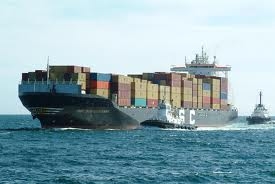
There has been a breakthrough in moves to make international trade more robust in the wake of Covid-era disruption.
At that time, breakdowns in supply chains of constituent or completed product helped push up inflation, hitting consumers in many countries.
The United States has been leading a push to fix this problem and progress has been announced in the US city of Detroit.
The deal was described by the US Commerce Secretary Gina Raimondo as a "first of its kind".
She says a central part of the deal would be the establishment of a "Crisis Response Network" to give early warnings of potential supply disruptions.
This will involve the establishment of an emergency communications channel to allow countries to see support and share information during supply chain disruptions.
It will also seek to promote fair trade and protect labour rights.
The New Zealand Trade and Export Growth Minister Damien O’Connor was also in Detroit, along with other ministers from a 14-member bloc set up to deal with this problem, the Indo-Pacific Economic Framework (IPEF).
This initiative was set up last September, and includes powerful economies like the US, Japan and India. .
O'Connor welcomes the deal.
“COVID-19 and Russia’s war on Ukraine have shown how supply chain disruption can impact the cost of living for everyday Kiwis," O’Connor says.
“According to the Customs Brokers and Freight Forwarders Association, the cost of sending a shipping container from New Zealand to the USA grew from $2,000 to $10,000 at the peak of the disruption. "
O'Connor adds the time taken for transit of shipping containers doubled in three years.
He says the signees agree to promote regulatory transparency, to share information about critical risks and to promote responsible business conduct and labour rights.
“Having a big group of countries commit to share information, identify stress points and come up with practical solutions is an important step forward,” O’Connor says.
“I commend the leadership of the United States in moving the IPEF agenda forward."
The New Zealand International Business Forum welcomes the deal as a good first step but says more is needed.
Its executive director Stephen Jacobi says as long as undertakings given by its signees are followed through, then they could provide some practical reassurance and support to companies moving goods and services across multiple jurisdictions.
“We have yet to see the detail of the agreement, but it would appear that these measures are not legally binding, are not subject to any dispute settlement (mechanism) and are not accompanied by commitments prohibiting export and import bans, unnecessary and expensive tariffs and non-tariff barriers."
3 Comments
In theory: Early awareness of potential constraints in the system allows collaborative efforts to minimize
In practice: Panic buying triggered by alerts
The problem is that disruptions can happen very quickly. Complacency also plays a part; no one really believed that the shut/lock downs would happen just to stop a virus.
But from NZ's perspective will (very) superficially this looks like a good thing, we are really just a very small South Pacific island nation, low on anyone's level of importance. The big lesson from COVID which all our political parties do not seem to be able to grasp, is that our national resilience is extremely fragile at best as we rely on others to supply us most of our basic needs. there is simply no political will to develop and support a local manufacturing industry to support national resilience and independence. The closure of Marsden Point refinery only further entrenches this. As others have point out we are on a firm downward slide to being a third world nation.
Not locking down the global economy because of the flu would be a good start.

We welcome your comments below. If you are not already registered, please register to comment
Remember we welcome robust, respectful and insightful debate. We don't welcome abusive or defamatory comments and will de-register those repeatedly making such comments. Our current comment policy is here.